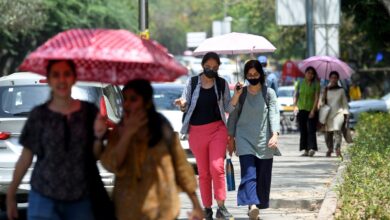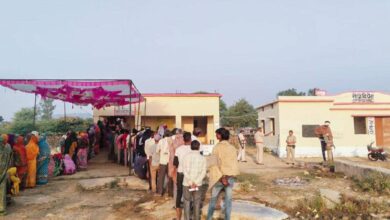Congress tries tie-ups in Madhya Pradesh & Chhattisgarh, to go solo in Rajasthan

The Congress is working towards a united opposition front in election-bound Madhya Pradesh and Chhattisgarh but is planning to go it alone in Rajasthan. Meticulously counting every seat in states where it has been out of power for 15 years, the party is trying to stitch up a grand alliance with the Bahujan Samaj Party and tribal parties working at the grassroots in Madhya Pradesh and Chhattisgarh.
United front in Madhya Pradesh
In Madhya Pradesh, Congress state unit president Kamal Nath is in talks with BSP leaders. In the 230-member assembly, the Congress had won 58 seats and the BSP four in the 2013 election. BSP has had a steady vote share of close to 7% in the state. With a tieup well in advance of the November election, the Congress, which had a vote share of 36.38% in 2013, is hoping for a direct transfer of BSP votes. “We hope to put up a united opposition front in MP. We are working on a seat-sharing arrangement with BSP,” a senior Madhya Pradesh Congress leader told ET.
“In case it does not work out for some reason, the Congress could look at a tacit understanding on seats where both the parties do not field candidates where the other is strong.” There are 34 seats reserved for Scheduled Castes in MP, which explains why the Congress hopes to benefit from a tie-up with the BSP, which champions the cause of Scheduled Castes or Dalits.
Banking on BSP & GGP in C’garh
Chhattisgarh, where the Congress and the BJP registered a 0.7% difference in vote share in 2013, is expected to see a tight election, with Ajit Jogi’s Janta Congress entering the fray. Congress is already in talks with BSP and Gondwana Gantantra Party (GGP) in the state.
“We are hopeful of forging an alliance with BSP and other regional parties like Gondwana Gantantra Party, which have a significant presence in Chhattisgarh. If we have a tie-up with these parties, it would be a very smooth election for Congress,” said PL Punia, Congress general secretary incharge of Chhattisgarh.”
In 2013 assembly election, BSP had one MLA and finished second in another constituency. There are 12 seats where BSP registers 1,500 to 17,000 votes, which could be a deciding factor for Congress. GGP has a significant presence in eight constituencies. In a 90-member assembly, a united front led by the Congress could hope to gain the upper hand.
Punia said, “We have initiated talks with both BSP and GGP. We are also working on strengthening our party organisation at the booth-level. Even further down the booth-level, we have trained the booth in-charges and held a training programme in 85 seats.””
Congress is sending signals of stitching up a united front. At a recent programme in Chhattisgarh, party president Rahul Gandhi had shared dais with GGP leader Heera Singh Markam.
No tie-ups in Rajasthan
In Rajasthan, the Congress is not keen on an alliance with any political party. The party had hit an all-time low in 2013, when it was reduced to 21 seats. BJP had won 163 seats, BSP three, National People’s Party four and National Unionist Zamindara Party two seats in the 200-member assembly. However, in a largely bipolar polity, Congress is hoping to cash in on what it believes to be rising anti-incumbency ag a i n s t Vasundhara Raje-led BJP government and win big.
The state has 17% SC population and 34 SC reserved constituencies. However, Congress holds only two of these 34 constituencies. The party is actively involving Dalit workers, giving them representation at state unit level. “Rajasthan is different from other states. There is a vibrant state unit. We have also cultivated Dalit leadership at all levels. An alliance at this time would mean discouraging our own leaders. It would be a case similar to Congress-SP alliance in UP,” said a senior Rajasthan unit leader.





